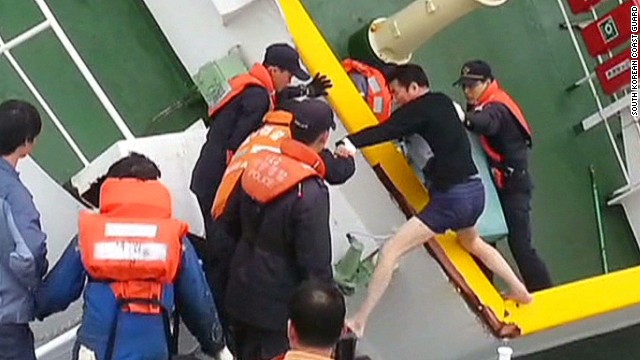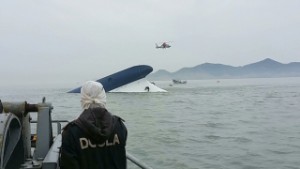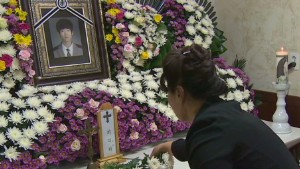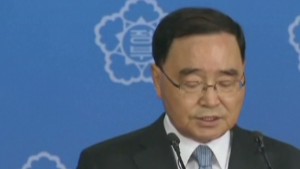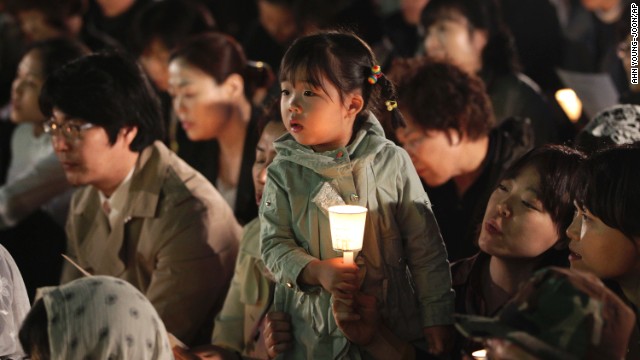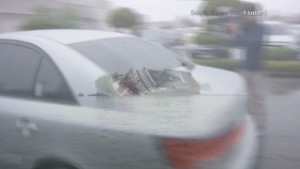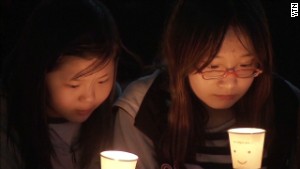A few weeks ago, before the ferry Sewol sank, I interviewed a theater director from Germany. He had just finished a show in Gwangju during which staff and audience members asked questions to 100 citizens, all nonactors, on stage, conducting an instant opinion poll.
What came as a shock, said the director, were the answers to the question, “Who here believes that news reports are manipulated?”
“Surprisingly, the vast majority said yes,” he said.
To me, it wasn’t surprising at all.
During my 10-plus years in journalism, the Korean media has been routinely blamed for political bias through misleading and often outright false reports. Journalists have been more often described as irresponsible, insensitive or malicious than as responsible, subjective or insightful. I am not at all proud of the quality of news reporting here, but it seemed to me that, to some degree, a public hostile to news reporters has become a part of the Korean journalistic tradition.
I told the German half-jokingly that I was relieved it wasn’t 100 percent.
Then the Sewol sank.
From day one, the local media’s coverage of the incident was itself a disaster. The Korean media couldn’t get the facts, let alone verify them, and just parroted the “official” announcement that all 338 Danwon High School students and teachers on board had been rescued. It later turned out only 78 had been rescued. Most of the blame lies with the ill-prepared, incompetent authorities who made such a grave mistake in tallying up the numbers.
But just recall the number of errors and misleading, irresponsible and insensitive reports that followed. It hurts to say this, but we proved that we were indeed all the things that people have called us ― irresponsible, insensitive and, most importantly, inaccurate. We gave them only more reasons to hate us.
On Wednesday, about 40 junior reporters of KBS, the largest of the three major broadcasters in Korea, posted letters of apology on its internal bulletin board. They were the ones who covered the ferry disaster from the field.
“We were in the field, but we didn’t cover the field,” one of the letters read. “When families of the victims cried and screamed that rescue efforts weren’t going as the government said they were, we turned a deaf ear, pretending to be impartial, noninvolved observers, writing our reports based on numbers released by the government and the marine police, who were absent from the scene.”
Another painfully recounted how the families, frustrated at KBS and other mainstream media outlets, resorted to one-person Internet media outlets and a cable channel, desperate to get their side of the story across to the public.
Many of my acquaintances spoke of such frustration, too. Instead of watching mainstream media reports, they decided to rely on independent alternative media outlets ― many of them run by one person ― to find out what was really happening on the island of Jindo, off which the ferry sank.
All of this is proof that the mainstream media has failed.
It is really a time for soul-searching for the Korean media. We need to ask ourselves the same questions that we have asked government officials and others: In this disaster-prone country, why haven’t we learned any lessons from past experiences? What will we do to prevent this from happening again?
But before we begin to think about the answers, why don’t we start by saying sorry? We owe the public an apology.
By Lee Sun-young (milaya@heraldcorp.com)
What came as a shock, said the director, were the answers to the question, “Who here believes that news reports are manipulated?”
“Surprisingly, the vast majority said yes,” he said.
To me, it wasn’t surprising at all.
During my 10-plus years in journalism, the Korean media has been routinely blamed for political bias through misleading and often outright false reports. Journalists have been more often described as irresponsible, insensitive or malicious than as responsible, subjective or insightful. I am not at all proud of the quality of news reporting here, but it seemed to me that, to some degree, a public hostile to news reporters has become a part of the Korean journalistic tradition.
I told the German half-jokingly that I was relieved it wasn’t 100 percent.
Then the Sewol sank.
From day one, the local media’s coverage of the incident was itself a disaster. The Korean media couldn’t get the facts, let alone verify them, and just parroted the “official” announcement that all 338 Danwon High School students and teachers on board had been rescued. It later turned out only 78 had been rescued. Most of the blame lies with the ill-prepared, incompetent authorities who made such a grave mistake in tallying up the numbers.
But just recall the number of errors and misleading, irresponsible and insensitive reports that followed. It hurts to say this, but we proved that we were indeed all the things that people have called us ― irresponsible, insensitive and, most importantly, inaccurate. We gave them only more reasons to hate us.
On Wednesday, about 40 junior reporters of KBS, the largest of the three major broadcasters in Korea, posted letters of apology on its internal bulletin board. They were the ones who covered the ferry disaster from the field.
“We were in the field, but we didn’t cover the field,” one of the letters read. “When families of the victims cried and screamed that rescue efforts weren’t going as the government said they were, we turned a deaf ear, pretending to be impartial, noninvolved observers, writing our reports based on numbers released by the government and the marine police, who were absent from the scene.”
Another painfully recounted how the families, frustrated at KBS and other mainstream media outlets, resorted to one-person Internet media outlets and a cable channel, desperate to get their side of the story across to the public.
Many of my acquaintances spoke of such frustration, too. Instead of watching mainstream media reports, they decided to rely on independent alternative media outlets ― many of them run by one person ― to find out what was really happening on the island of Jindo, off which the ferry sank.
All of this is proof that the mainstream media has failed.
It is really a time for soul-searching for the Korean media. We need to ask ourselves the same questions that we have asked government officials and others: In this disaster-prone country, why haven’t we learned any lessons from past experiences? What will we do to prevent this from happening again?
But before we begin to think about the answers, why don’t we start by saying sorry? We owe the public an apology.
By Lee Sun-young (milaya@heraldcorp.com)




